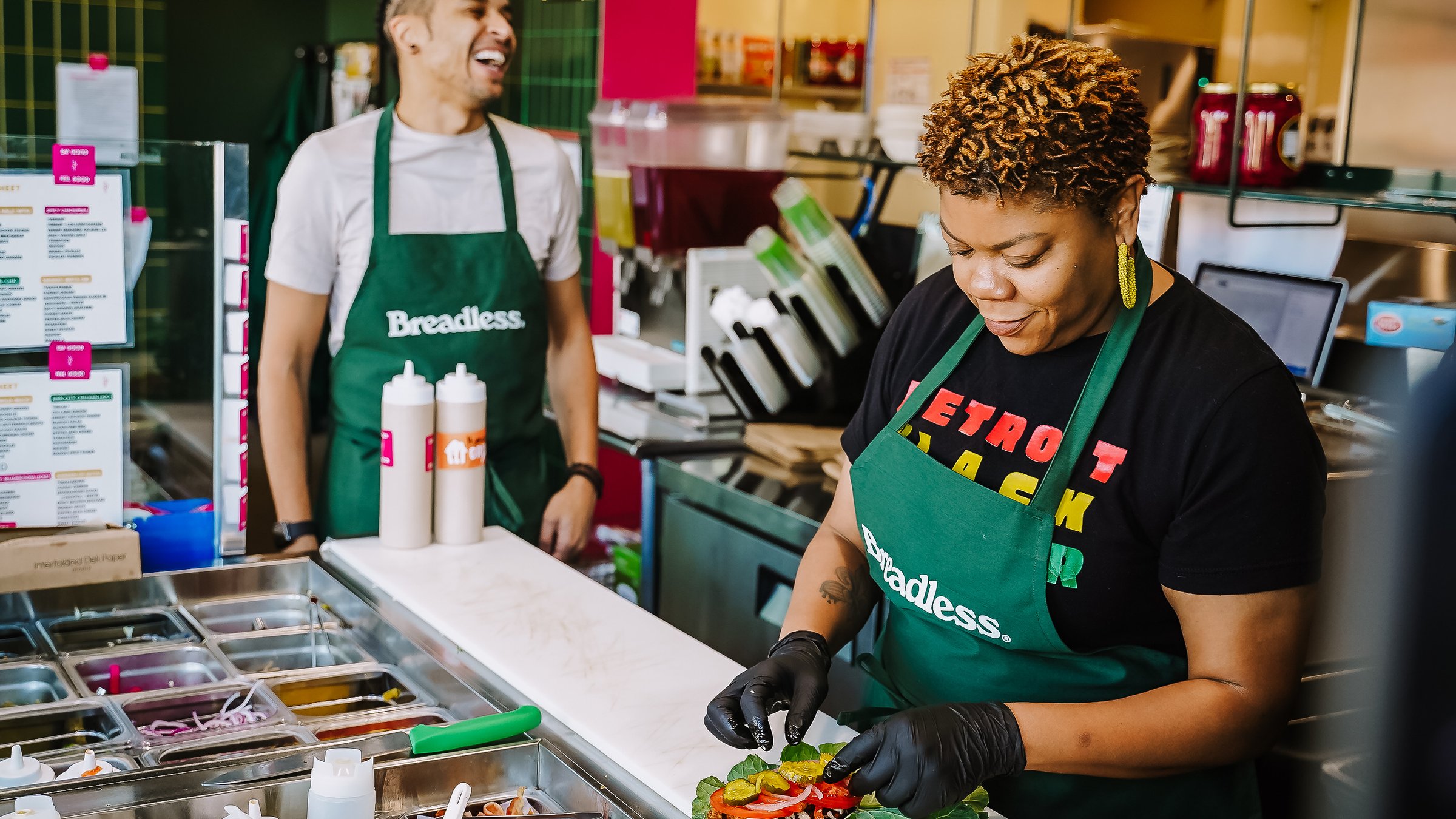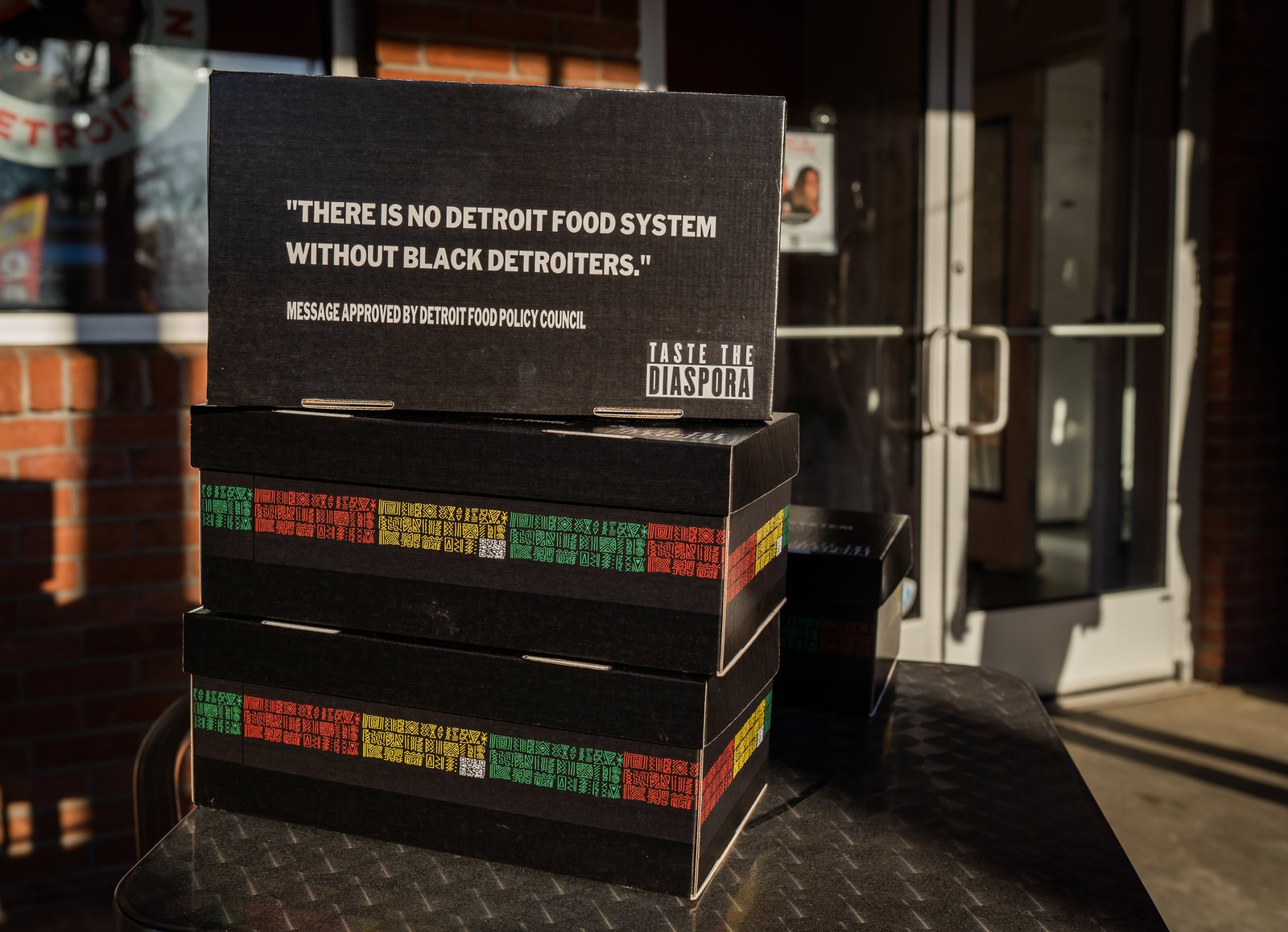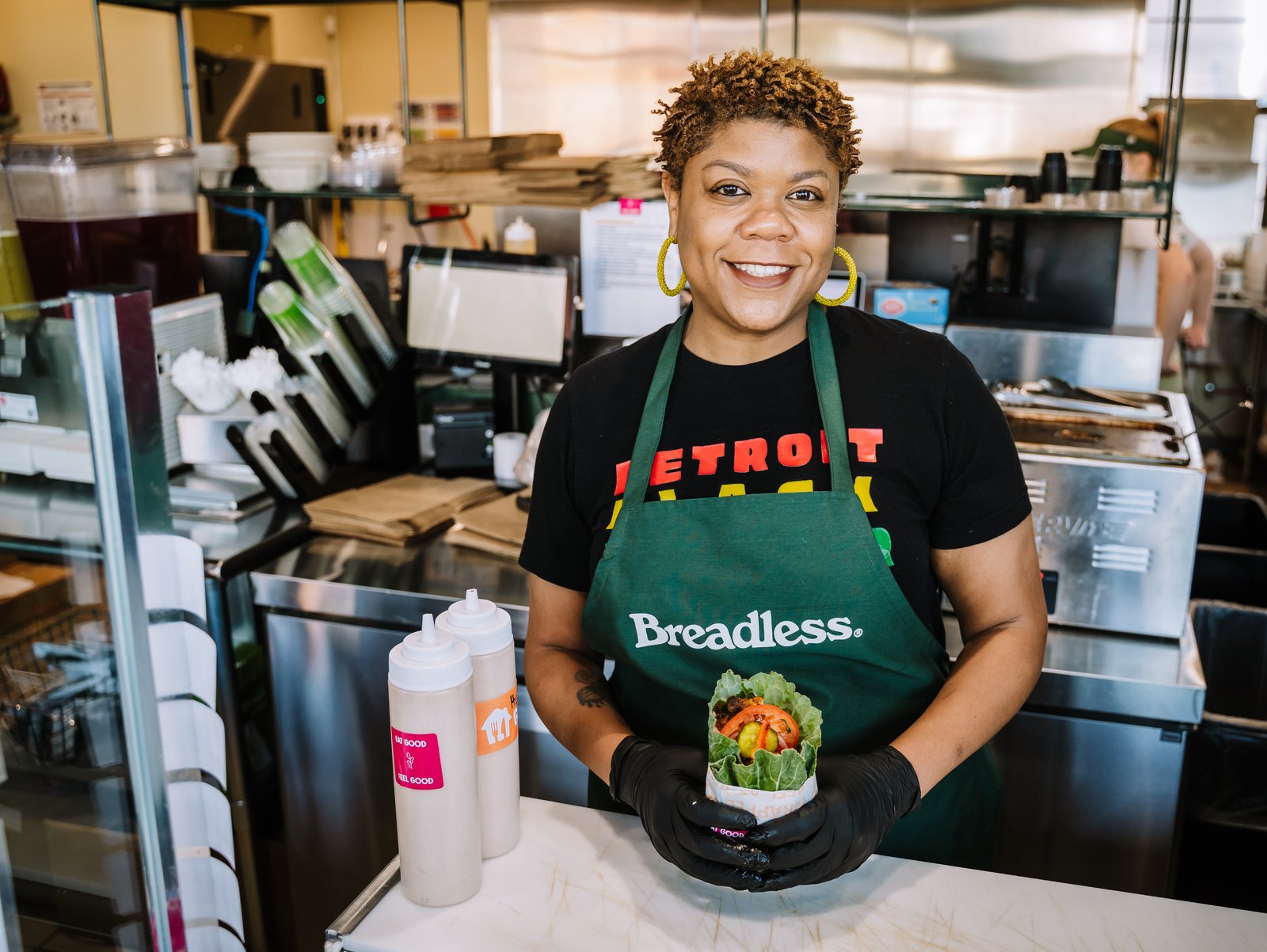Local chef Ederique Goudia and partners aim to feed Detroiters' bodies, minds and souls with good food, community support
DETROIT — With each passing year, food insecurity continues to rise in the city of Detroit, as do the number of programs and nonprofits making an effort to address the crisis and keep Detroiters fed.
Chef and food activist Ederique Goudia is among those working to provide healthy, nutritious meals to Detroiters in need. But Goudia isn't just interested in feeding people's bodies. She's interested in feeding minds and souls, as well.
Goudia, commonly known in the Detroit food scene as “Chef E,” has long used her talents and passion for food to serve others.
“I have been able to use my voice to advocate for things like child nutrition, food waste and food insecurity, and mental health as it relates to hospitality workers,” Goudia, a member of St. Augustine and St. Monica Parish on Detroit's east side, told Detroit Catholic. “I have really been able to not just work in the industry, but immerse myself into being a strong advocate for the rights of not only hospitality and restaurant workers, but also children and families.”
Besides standing up for the less fortunate, Goudia is passionate about highlighting the contributions of African-Americans to the local food scene.
In 2021, Goudia helped spearhead the launch of "Taste the Diaspora," a new program for Black History Month designed to celebrate the important role of food in the African-American community and to assist those in need. For the past three years, the team has partnered with Black-owned restaurants to sell themed food boxes throughout the month, while raising money to donate boxes free of charge to Detroiters facing food insecurity.
“We wanted to highlight foods of the African diaspora,” Goudia said. “We fed people, but it was done in a way that was really educational. I realized there is no celebration of foods of the African diaspora here in Detroit, and for Detroit to be a majority Black city — how have we not done this?”
Goudia, who resigned in January as the lead chef for the nonprofit Make Food Not Waste but still serves on the board, explained the idea for the initiative was born in late 2020, when the nonprofit undertook an initiative to feed Detroiters for Thanksgiving.
The pandemic exacerbated an already worrying trend of Detroiters facing food insecurity, Goudia explained. As of 2021, 69% of Detroit families faced difficulties putting enough food on the table, a 7% increase from 2019.
Many Detroit restaurants also struggled during the pandemic, Goudia added.
“We were able to connect with other chefs all over the city because restaurants were shut down, and workers were losing pay and hours,” Goudia said. “We provided a completely cooked Thanksgiving meal cooked by chefs all over the city. We told them we’d pay for their people to do it, and we will provide all the ingredients.”
The final menu consisted of delicious and gourmet Thanksgiving favorites: Turkey, sweet potato pie, mashed potato, green beans — the whole nine yards, Goudia said, and it fed 5,000 Detroiters.
“We can feed people, but we also want to do it with dignity,” Goudia said. “Just because you’re food insecure does not mean you need to be given this poverty box of a can of green beans and milk that is going to spoil in two days and a bag of potatoes. It felt like they were picking up their favorite meal from their favorite caterer or the country club.”
Make Food Not Waste partnered with distributors across the city to give people access to the meals — those who experience food insecurity are likely facing transportation insecurity as well, Goudia explained.
The event was such a success, Goudia said, that one of the distributors, Raphael Wright, owner of Neighborhood Grocery, volunteered to help fund another event. Goudia and Wright put their heads together and landed on February, Black History Month, and began to create a plan.
In addition to Wright and Goudia, the team also includes Jermond Booze, another local chef with degrees in culinary arts and African-American studies.
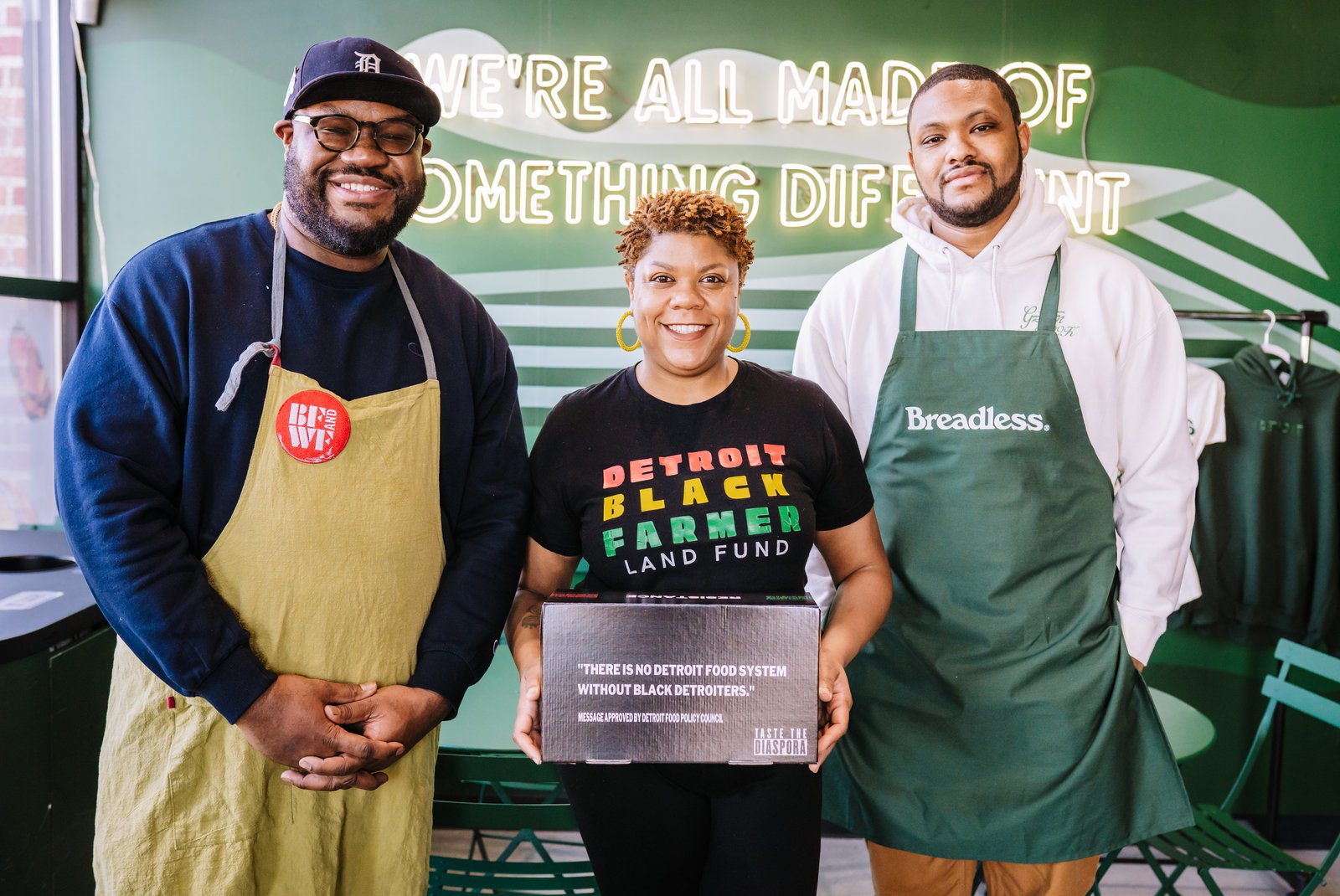
In addition to feeding and educating people, Taste the Diaspora is designed to support Black chefs, growers and farmers who had been impacted by the pandemic, Goudia explained.
“We wanted to figure out how to provide additional revenue to them in a time when they’re really hurting,” Goudia said. “Black farmers are hurting as well because they are sometimes left out of (the U.S. Department of Agriculture's) different programs. We decided to partner with different Black chefs and restaurants each week. They would provide meals in those boxes, and we would require them to partner with farmers and Black food makers so we could circulate that dollar."
Each week, the team highlighted a different cuisine of the African diaspora. One week, Creole cuisine was on the menu; another week was Caribbean, and then came soul food and African. Each box included information about the dishes inside, their history and importance.
In 2021, the team sold 500 boxes in three days, provided 100 free meals to food-insecure families and put $10,000 back into the hands of Black chefs, farmers and food makers. This year, Goudia said, Taste the Diaspora fed at least 400 families and youths during Black History Month.
In addition to the monthlong February program, Goudia and her team have found other opportunities to give back and feed people.
Goudia, who has lived in Detroit for 20 years, is originally from a small town in southern Louisiana. When Hurricane Ida hit in 2021, her hometown was left without the resources needed to rebuild.
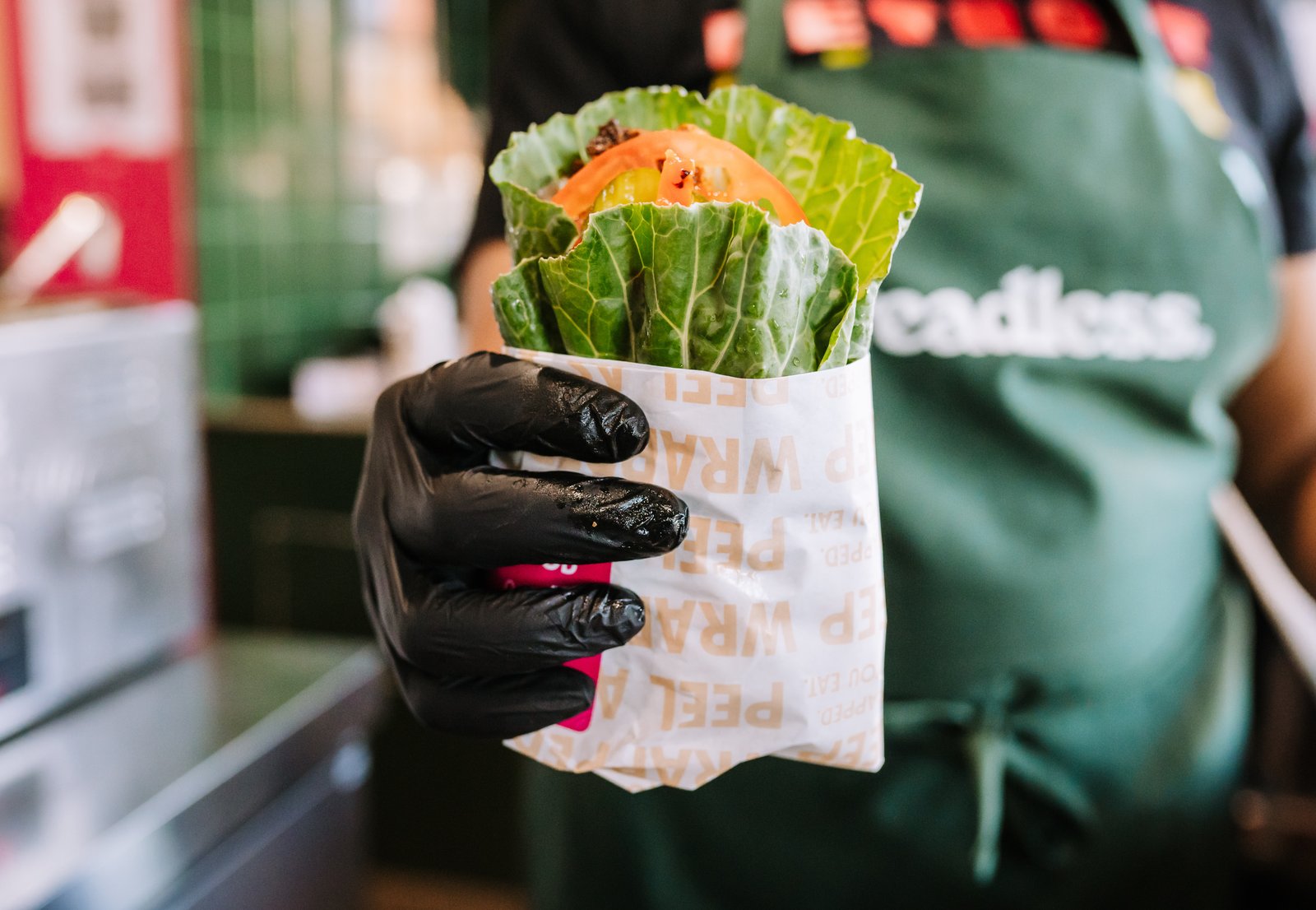
“We decided to do some efforts up here and then send some money down there. We did a weeklong event to raise money for hurricane relief, and we were able to raise $8,500 that we sent down to my hometown,” Goudia said.
In addition to raising money, the Taste the Diaspora team traveled to Louisiana to host a community dinner and assist with cleanup efforts, bringing other Black chefs from Detroit to help, Goudia said.
Using her gifts and talents to help the community is a no-brainer for Goudia.
“The beatitudes are a cornerstone of the Catholic faith, and I really believe in treating people as you want to be treated,” Goudia explained. “Doing for your neighbors and doing for your community, and that is where my faith has directed the work that I do. Whether that is in the city of Detroit or beyond, it is about being not just a resource, but also not a hindrance to my community. (I need to be) a helper and do what I can do through the skills that God has given me.”
Copy Permalink
Black Catholic ministry Christian service


